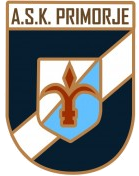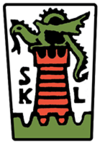The 1923 National Championship held in the Kingdom of Serbs, Croats and Slovenes was the first nationwide domestic football competition. At this point there was no league championship in the modern sense as the competition was held in a single-legged cup format, with participating clubs qualifying via regional playoffs organised by the existing 6 regional football subfederations.
The 1924 National Championship held in the Kingdom of Serbs, Croats and Slovenes was the second nationwide domestic football competition. At this point there was no league championship in the modern sense as the competition was held in a single-legged cup format, with participating clubs qualifying via regional playoffs organised by regional football subfederations.
The 1927 National Championship was the first year in which the championship was played in a league system, with Hajduk Split being the first national league champion. Newcomer BSK Beograd replaced Jugoslavija Beograd as Serbia's top-performing club, this was due to half of the Jugoslavija players switching clubs to play for BSK. Hajduk and second-place club BSK entered the 1927 Mitropa Cup.
The 1929 National Championship was won by Hajduk Split.
The 1930 National Championship had the number of teams participating raised to six. The champion, Concordia Zagreb, was a newly formed team consisting of previous HAŠK players.
The 1935–36 Yugoslav Football Championship was the 13th season of Kingdom of Yugoslavia's premier football competition.
The 1939–40 Yugoslav Football Championship was the 17th, and last, season of Kingdom of Yugoslavia's premier football competition. The season lasted from May 2 to June 19, 1940.

FK BASK TEK is a football club from Savski Venac, Belgrade, Serbia. It is one of the oldest clubs in Serbia. The club currently competes in the Serbian League Belgrade. BASK are the initials of Beogradski akademski sportski klub.
Football in Slovenia is governed by the Football Association of Slovenia. Slovenia has been participating in international football as an independent country since 1991, when the country gained independence from SFR Yugoslavia. The Slovenia national football team has qualified for four major tournaments.

Gragjanski Skopje was a football club from Skoplje, Yugoslavia. The club's major achievements were the two participations in the Royal League during the period of 1923 till 1940, and playing in the Bulgarian Championship between 1941 and 1944. Between 1941 and 1947 it was called FC Makedonia..
The 1928 National Championship proclaimed Gradanski Zagreb once again as the reigning champions, with Hajduk and BSK following closely behind.
Novosadski atletski klub (NAK) was a football club from Novi Sad that existed from 1910 until 1945.

Nogometno društvo Ilirija 1911 is a Slovenian football club based in Ljubljana, the Slovenian capital, that competes in the Slovenian Second League, the second tier of football in the country. The club was founded in June 1911 and is the oldest still active football club in the country.
The Belgrade Football Subassociation, commonly known by its initials, BLP was one of the regional football governing bodies under the tutorial of the Football Association of Yugoslavia. It was formed on 12 March 1920, and included the clubs from the geographical territories of Vojvodina, Central Serbia, Old Serbia (Kosovo) and South Serbia (Macedonia). The increase of number of clubs made that progressively other subassociations become formed by separating them from Belgrade's one. By 1932 its territory included beside Belgrade metropolitan area only the districts of Kolubara, Braničevo, Podunavlje and Jasenica-Kosmaj.
The Skoplje Football association was one of the regional football governing bodies under the tutorial of the Football Association of Yugoslavia. It was formed on 18 December 1926 having been earlier part of the Belgrade Football Subassociation. By the time of its formation it included the clubs from the districts of Skopje, Bregalnica, Bitola, Kosovo and Vranje. It was one of the Football Subassociations which formed the football league system in the Kingdom of Yugoslavia.
The Kragujevac Football Subassociation was one of the regional football governing bodies under the tutorial of the Football Association of Yugoslavia. It was formed on 20 December 1931.
The Serbian League season of 1939–40 was a league which along the Croato-Slovenian one, will form the final group of teams to participate in the 1939–40 Yugoslav Football Championship. The clubs from the Vardar Banovina, Vrbas Banovina, Zeta Banovina, Morava Banovina Drina Banovina, and Danube Banovina competed in the Serbian League.

Akademski sportni klub Primorje, commonly referred to as ASK Primorje or simply Primorje, was a Slovenian football club from Ljubljana. The club was formed in May 1920 and was later dissolved in 1936, when its first team merged into a newly formed SK Ljubljana.
Association football is the most popular sport, both in terms of participants and spectators, in Ljubljana, Slovenia.




